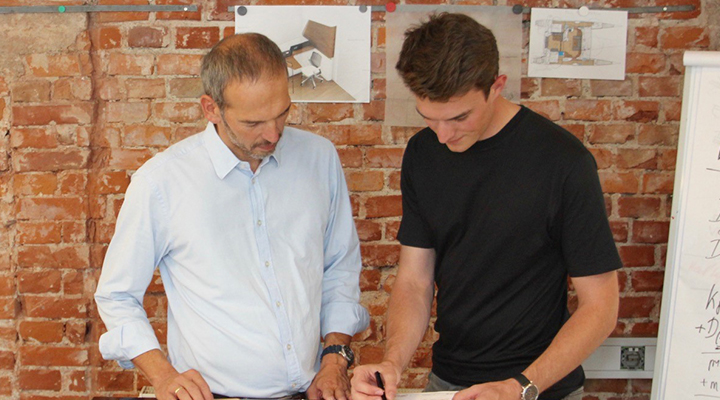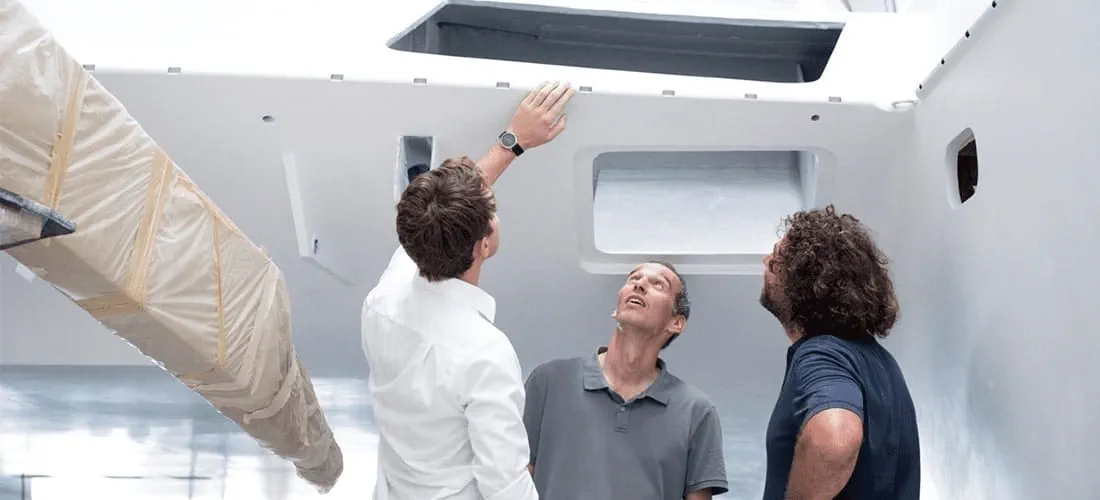2017 was the year that METSTRADE introduced its E-nnovationLAB. An area on the exhibition floor specifically designed to showcase technologies and manufacturers of electric & hybrid marine propulsion systems and components for the leisure marine industry. Our industry is on its way to finding new systems, that need new ways of merging them into the boat building process. But what are the main advantages of electric and hybrid systems? And what are the challenges?
Last METSTRADE we sat together with Michael Körner, Partner at ANTS Yacht-Consult and CEO of Sailectron e.U. and asked him for his take on how the electric and hybrid market will evolve within the next couple of years within the yachting business.
“A major problem with fully electric combustion systems is still - and we do not expect that to change dramatically in the next 5-10 years - the power density of the battery systems, so we mainly expect to see more and more hybrid drivetrains to arrive in the market of smaller-sized yachts.”
METSTRADE >> Where do you expect we’ll be in 5 to 10 years with regards to electric & hybrid technology?
Michael: A major problem with fully electric combustion systems is still - and we do not expect that to change dramatically in the next 5-10 years - the power density of the battery systems, so we mainly expect to see more and more hybrid drivetrains to arrive in the market of smaller-sized yachts. These not only allow more efficient use of fossil fuels but also better weight distribution and major changes in the way yachts are built, meaning that the future yacht will not be built around a combustion engine anymore - the unit will rather be placed where ballast and interior layout allow it.
Especially for sailing vessels - our main market - one of the most interesting parts in the development of these drive systems is the possibility of using the electric drives as hydro generators when sailing. This way - together with a reasonably-sized battery and solar systems for power generation when at anchor the diesel generator only needs to be onboard as a backup - a modern sailing vessel will soon be able to operate almost independent from shore support for long periods of time.
“Lithium-Ion batteries are becoming standard, solar systems bigger and the demand for well-integrated solar systems rises.”

METSTRADE >>What is your take on the current demand of the market?
Michael: Basically, parts of these systems are part of a discussion of every new project we are doing. Lithium-Ion batteries are becoming standard, solar systems bigger and the demand for well-integrated solar systems rises. Electric drivetrains are slowly starting to be accepted and discussed as a serious alternative, while most customers still have concerns regarding maintenance and reliability. Even though electric propulsion has no financial advantage (so far) for cruising yachts, there are some early-adopters and shipyards we are currently working with to realize fully-electric sailing yachts; paving the way for these systems to become available for the mainstream market.
“Generally, onboard electronics are becoming more complex. A marine diesel engine can be fixed by talented mechanics anywhere in the world, while electric and hybrid systems need specialists for maintenance and repairs.”
METSTRADE >> What are the main advantages versus current challenges/disadvantages of electric & hybrid marine systems and components?
Michael: Besides more flexibility in positioning of drivetrain components, the main advantage is better fuel efficiency and a bigger range - up to complete independency - of fuel supply. Also, the big batteries used in electric and hybrid systems positively affect the energy management onboard; electric cooking, inverter-powered air-condition, water makers and multiple fridges/freezers become possible without having to run a diesel generator.
The biggest disadvantage is maintenance and troubleshooting of these systems. Generally, onboard electronics are becoming more complex - especially the drivetrain has to be reliable. A marine diesel engine can be fixed by talented mechanics anywhere in the world, while electric and hybrid systems need specialists for maintenance and repairs. To solve this, the bigger manufacturers are working on remote-monitoring systems and trying to build in redundancies. Setting up a worldwide service network for electric and hybrid drive systems takes time and costs a lot of money - the next 10 years will show which manufacturer succeeds here. Close collaboration with the automotive industry could be a key factor as the development of a worldwide service network will likely go hand-in-hand with the spread of electric cars.
At METSTRADE 2017 we spoke with ANTS Yacht Consult about leisure marine market trends. See the full video interview here below.







